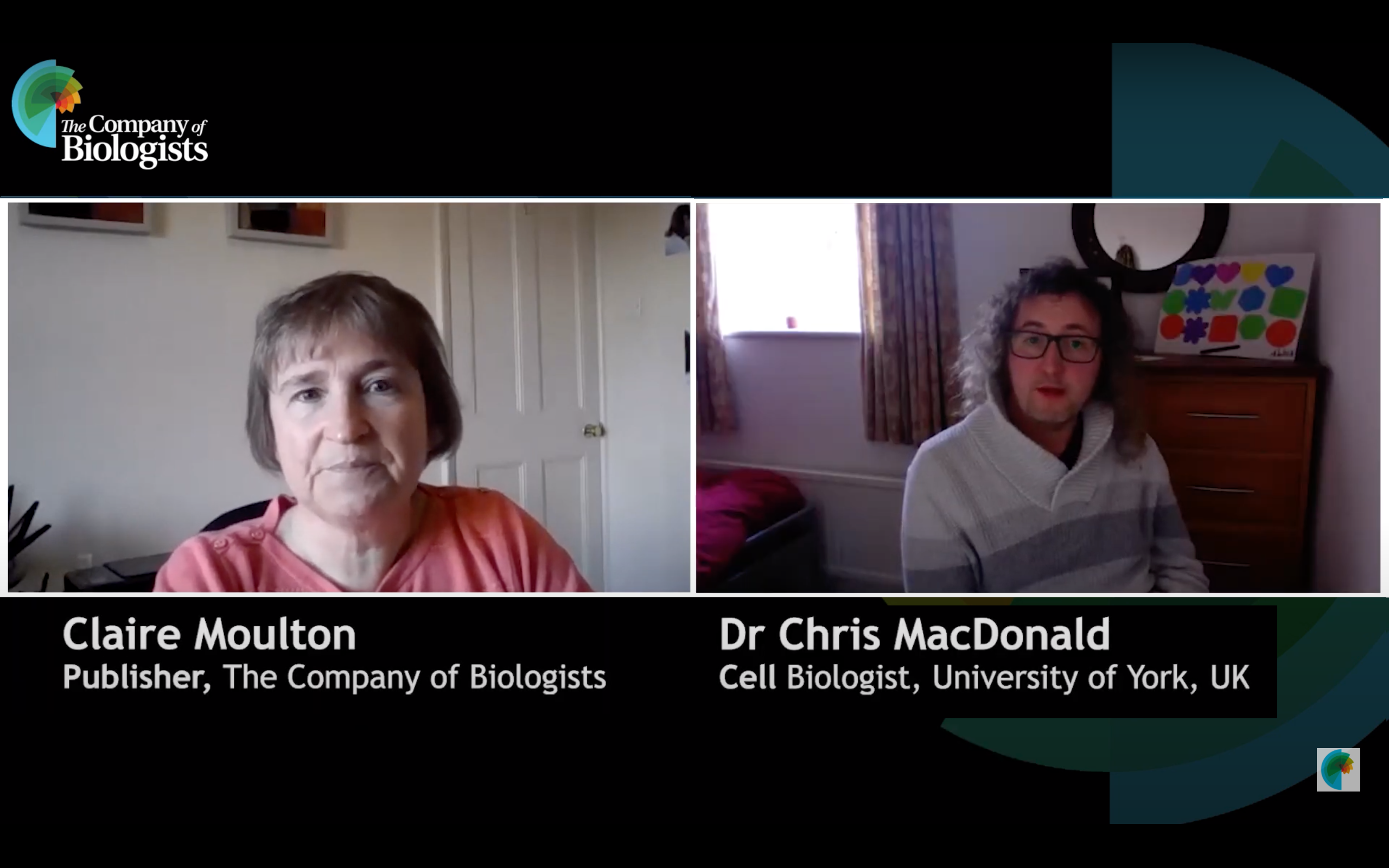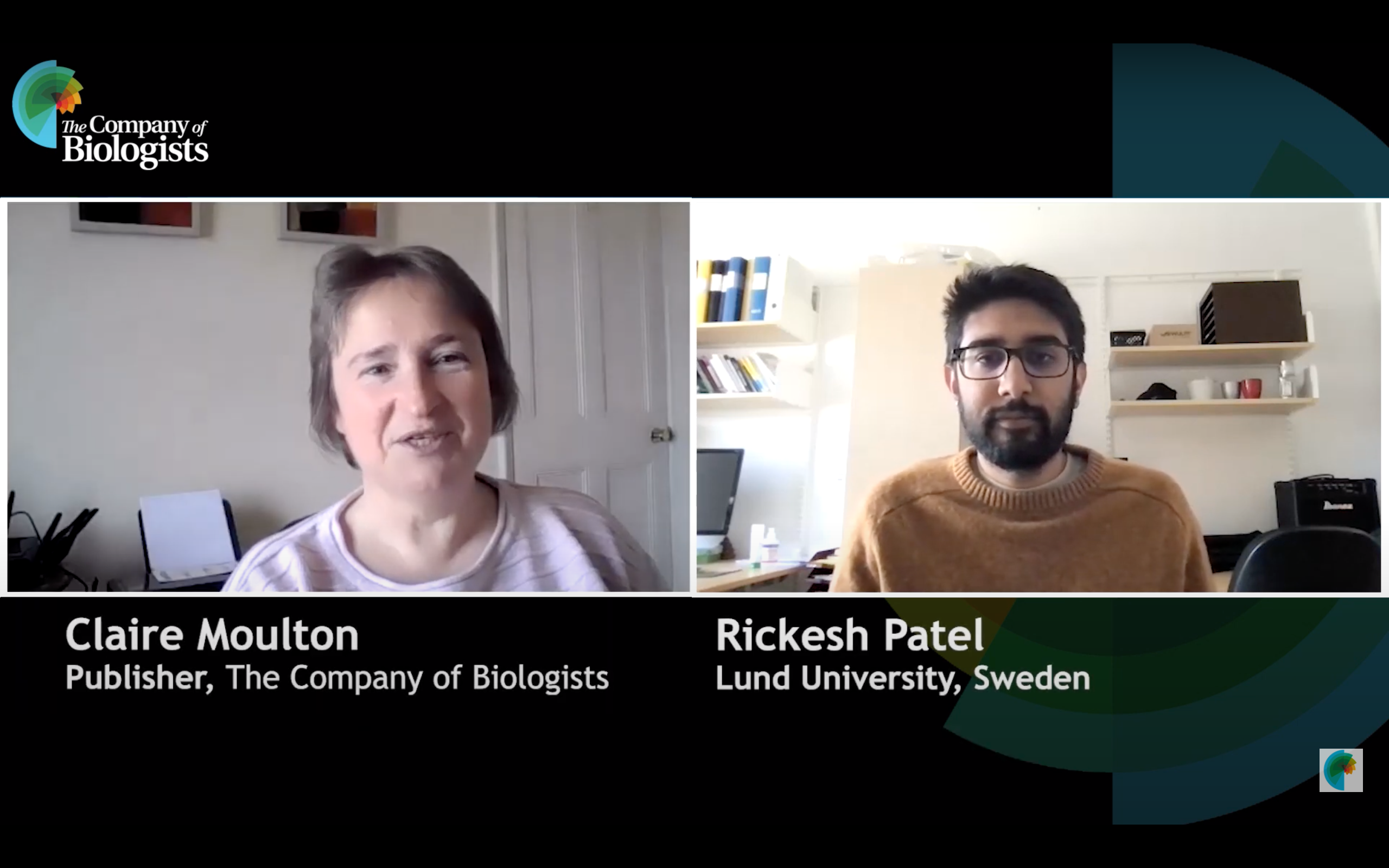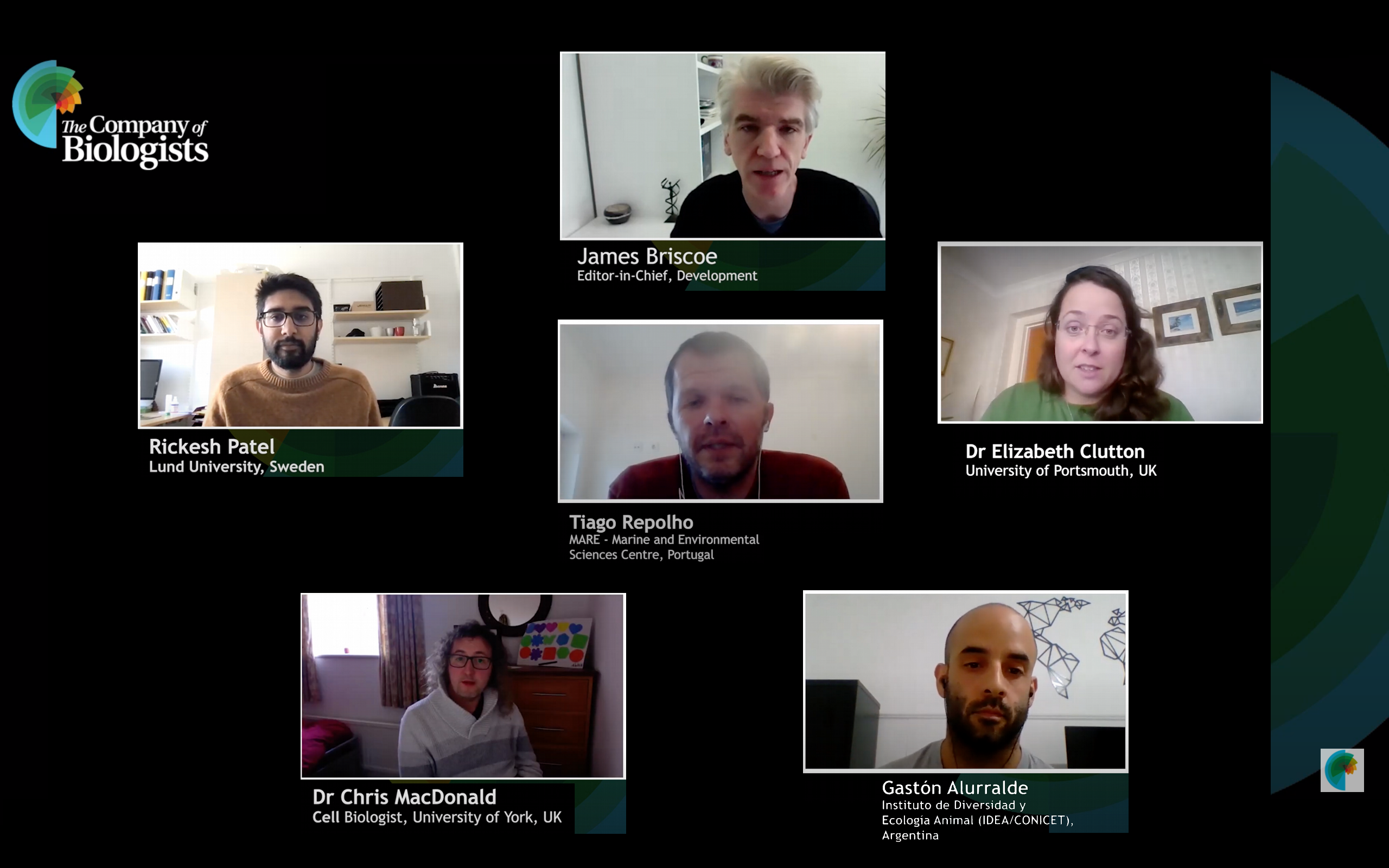Three authors on their experience of OA publishing through our Read & Publish initiative
Dr Elizabeth Clutton (University of Portsmouth, UK), Tiago Repolho (MARE, Portugal) and Gaston Alurralde (IDEA/CONICET, Argentina) talk about what it meant to them to be able to publish their article in Journal of Experimental Biology immediately OA without charge through our Read & Publish initiative.
Transcript
Claire Moulton: I'm here with corresponding author, Liz Clutton, from the University of Portsmouth, UK, and our co-authors Tiago Repolho, a junior researcher at the University of Lisbon, and Gaston Alurralde, a postdoc at the National University of Cordoba in Argentina.
Claire Moulton: They recently published an article in Journal of Experimental Biology on invasive species and the effects of marine temperature increases.
Claire Moulton: What does it mean for you as authors to be able to publish Open Access through our Read & Publish initiative?
Liz Clutton: So we're really grateful to the Journal of Experimental Biology, for accepting our paper, and because of the Read & Publish agreement in place, we didn't have to pay any publishing fees, which was just absolutely fantastic, because it enabled us to obviously, tick the box to go for Open Access early on.
Liz Clutton: And it enabled us to then get our work out in the Journal of Experimental Biology.
Tiago Repolho: With Open Access, it just means everything.
Tiago Repolho: So it's open for everyone, either our peers, public, project stakeholders.
Tiago Repolho: So it makes our science reach a broader level.
Tiago Repolho: It's open, accessible to everyone.
Gaston Alurralde: Being able to publish Open Access, and for free is a really good achievement.
Gaston Alurralde: At least for me, that I work in a third world country, and usually we are restricted to access, to many different journals and research.
Gaston Alurralde: So that's really nice to be able to publish for free and Open Access, to bring our research to everyone.
Claire Moulton: And can you tell us the story behind your paper?
Liz Clutton: So I met Gaston and Tiago, whilst attending a course in Sweden in 2014, which was to discuss climate change and marine evolution, we were really fortunate that we had come together, we bonded, we'd come up with a brilliant project idea, which was subsequently funded by the course organiser, and that allowed us to continue to meet up, kind of explore our experimental ideas, and we actually managed to get further carry on funding to come back to Sweden in 2016 and conduct a larger scale experiment.
Gaston Alurralde: Regarding our research, we focus on different aspects of climate change, that are of very concern, one invasive species and global warming.
Gaston Alurralde: And one of the facets of global warming will be the increased frequency in heat waves, in many heat waves.
Gaston Alurralde: So we look at the very early stage of an invasion, in the native range of a species, how they behave to these heat waves and try to see if the animals that are already under high physiological stress, as in polluted environments, are better able to cope with these climate changing scenarios and became finally an invasive species.
Gaston Alurralde: And actually we've focused on an ascidian species which is very well known as an invader outside of the area that we were studying.
Gaston Alurralde: Well, we found that these animals are more resilient or are better at coping with this increase.
Gaston Alurralde: So these posed new insights on the invasive ecology of these animals.
Tiago Repolho: It's a great opportunity to publish in JEB, because the name of the journal just speaks by itself.
Tiago Repolho: Journal of Experimental Biology is basically our work.
Tiago Repolho: So it's experimental research, experimental biology and it's the basics.
Tiago Repolho: It is the basics that provides big findings for a better future, in our case, to mitigate climate change effects at worldwide level.
Liz Clutton: Obviously just thank you to everyone, that's given us the opportunity to do this work and to get it this far, and that goes right to the start of Dr Sam Dupont and Dr Piero Calosi, who ran the course, funded us, and then obviously the KVA allowing us to come back and use all the resources and and JEB for then accepting the paper, because every point we've had to, someone's had to give us an opportunity to keep going, and that's why five years on, we're still sitting here, really good friends.
Claire Moulton: Thank you so much for giving your time today because it really does mean a lot to us to be able to feature authors, who have successfully published with the journals and been able to publish Open Access.
Claire Moulton: Thank you.










